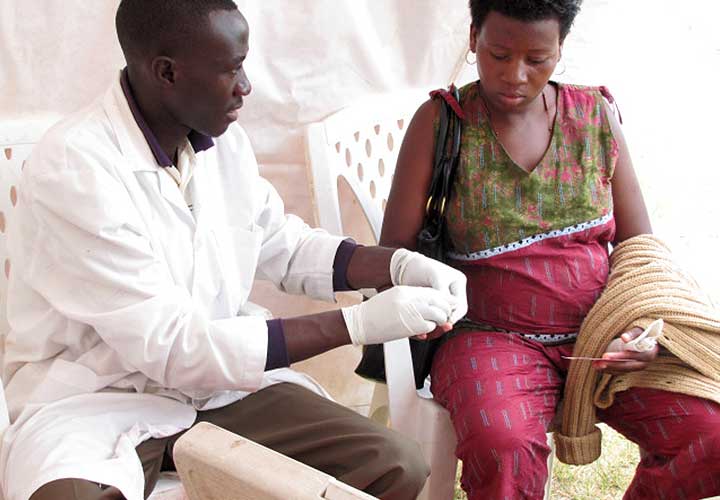The World Health Organization recommends that pregnant women should commence ante natal visit at the second missed period. This is equivalent to eight weeks (8 wks) after the last menstrual period.
At this initial booking visit, investigations that will be offered will generally vary from one region of the world to another based upon the most prevalent health conditions that constitute risk to the pregnant women and the baby.
History about the current and previous pregnancy is obtained and physical examination of the women including a general examination and examination of specific systems of the body, including evaluation of the baby by clinically determining growth pattern of the baby and the well being of the baby.
In my centre in Nigeria and most parts of West Africa, the investigations done include test of your urine for sugar and proteins. Blood test for blood group, genotype, HIV screen, screen for syphilis, and screen for hepatitis B. It is also very important to have an obstetric ultrasound scan done to confirm the well being of the baby. The early ultrasound scan apart from confirmation of the pregnancy is very useful for accurate dating of the pregnancy. Late scan are not as accurate.
SUBSEQUENT VISITS: In the WHO schedule focused ANC is recommended. This is based on current best evidence and practice, and the peculiarity of individual pregnancies.
In an uncomplicated pregnancy, the next visit will be at about 20-24weeks and another ultrasound scan will be requested to exclude the possibility of structural abnormality. This is quite reassuring for many couples. The routine examination and routine drugs are also given to the women. Routine drugs are usually iron/folate supplements as well as calcium supplements. In the first trimester of pregnancy, I only give folate supplements because research has shown that the iron requirement of women in the first trimester is not different from pre-pregnancy state and most women don’t tolerate iron in the first trimester of pregnancy because of the nausea and vomiting.
In sub-Saharan Africa and malaria endemic regions of the world, women are given anti-malaria prophylaxis.A Prophylaxis is drug used to prevent a disease condition without waiting for the condition to occur. Paludrine is safe all through pregnancy. The Federal Minsitry of Health of Nigeria, based upon research, recommends the use of sulphadizine/pyrimethemine (popularly sold as Fansidar, Maloxine and Amala) combination after the first trimester for malaria prophylaxis. This drug combination is usually given at about 18 weeks of pregnancy.
Two doses of sulphadoxine/pyrimethamine combination is given at least four weeks apart. Women who are HIV-positive are given three doses.These drugs are safe for use from the 2nd trimester of pregnancy.You don’t have to be worried about any harmful effect to the baby.They are generally avoided in women who react to sulphur based drugs.Some clinicians including yours truly, does not prescribe these drugs after 34 weeks gestation because of its possible link to jaundice in the newborn
Tetanus toxoid immunization is also given to the pregnant women. A third visit should take place at about 32weeks, to monitor the health of the baby and the mother.
The fourth/last visit should occur at about 36-37 weeks. This visit is to plan and prepare for delivery.
In this WHO model, a total of four visits are made for uncomplicated pregnancies. In the course of these visits the doctor may decide on more frequent visits or the pregnant women may request for more visits. The arrangement is usually flexible.
This model of ante natal is not yet practiced in many centers in sub-Saharan Africa. The traditional model of antenatal visits is still the popular type in many centers in Nigeria. In this model, visits are four weekly before 28 weeks of gestational age and two weekly after 28 weeks up on till 36 weeks and weekly visits thereafter till term.
Investigations and routines are pretty much similar. During the ANC visits, meticulous attention should be paid to the weight of the woman, her blood pressure, and urinalysis for protein and sugar.






